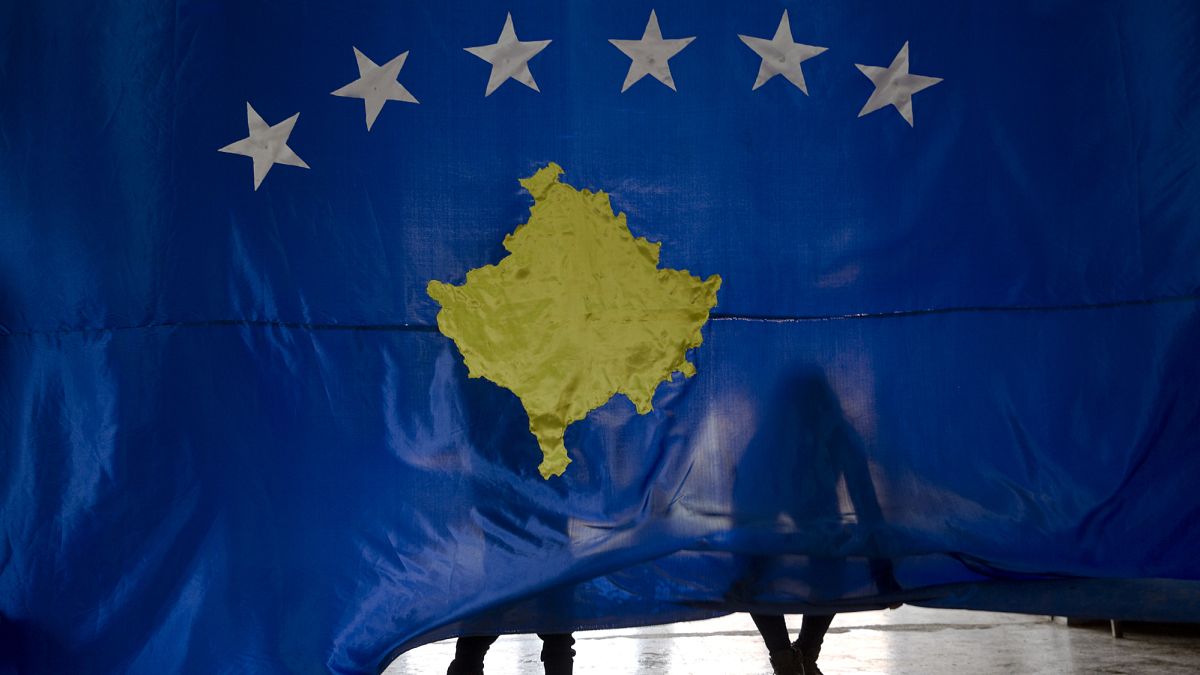More
Voting gets under way in legislative elections in Kosovo

The legislative elections in Kosovo, which took place on February 9, mark a significant milestone for the country, as they represent the first time since its independence in 2008 that the parliament has completed a full four-year mandate. These elections are widely viewed as a crucial test for Prime Minister Albin Kurti, whose left-wing Vetevendosje! (Self-Determination Movement) party is leading in the polls but is unlikely to secure an outright majority. With 26 political groupings and one independent candidate vying for 120 seats, the vote is taking place against a backdrop of economic struggles and heightened tensions between ethnic Albanians and Serbs. The elections are not only about selecting lawmakers but also about determining the direction of Kosovo’s future, particularly in its relations with Serbia and itsintegration into the European Union.
The political landscape in Kosovo is dominated by three main contenders: Vetevendosje!, the Democratic Party of Kosovo (PDK), and the Democratic League of Kosovo (LDK). Vetevendosje!, led by Prime Minister Kurti, has positioned itself as a champion of national sovereignty and anti-corruption efforts. However, Kurti’s tenure has been marred by tensions with Western powers, particularly over unilateral actions such as the ban on the use of the Serbian dinar and the restriction of Serbian-funded social services for Kosovo’s Serb minority. Despite these challenges, Kurti remains a popular figure, and his party is expected to emerge as the largest in parliament. The PDK, once a dominant force in Kosovo’s politics, has seen its influence wane due to the ongoing war crimes trials of its former leaders at The Hague. The LDK, the oldest party in Kosovo, has also lost significant support since the death of its charismatic leader, Ibrahim Rugova, in 2006. During the campaign, all three parties made ambitious promises to improve public salaries, pensions, education, and healthcare, though they largely avoided explaining how these pledges would be funded.
Kosovo’s economic outlook remains bleak, with the country ranking among the poorest in Europe. Its annual GDP per capita stands at less than €6,000, and unemployment rates are alarmingly high, particularly among the youth. The economic challenges have been exacerbated by a 90-day freeze on U.S. funding for development projects through the U.S. Agency for International Development (USAID), which has played a critical role in supporting Kosovo’s growth since 1999. The U.S. has invested over $2 billion in Kosovo, including more than $1 billion through USAID, making it one of the largest donors to the country. However, the suspension of these funds has added pressure on an already strained economy, further highlighting the need for sustainable solutions and increased foreign investment.
The elections also hold significant implications for Kosovo’s relations with Serbia and the stalled normalization talks facilitated by the European Union. Serbia, which does not recognize Kosovo’s independence, declared in 2008, continues to claim the territory as its own. Tensions between the two sides have remained high, particularly in northern Kosovo, where most of the Serb minority resides. The EU has urged both sides to implement agreements reached two years ago, including Kosovo’s commitment to establish an Association of Serb-Majority Municipalities and Serbia’s implicit recognition of Kosovo’s statehood. However, progress on these fronts has been slow, and the normalization dialogue has seen little traction during the electoral campaign. Analysts warn that the new Kosovo government must take decisive steps to restore trust with the EU and the U.S., particularly by de-escalating tensions in the north and engaging constructively in dialogue with Serbia.
The international community has closely monitored the elections, with over 100 EU observers, 18 from the Council of Europe, and numerous local and international organizations overseeing the process to ensure its credibility. The NATO-led KFOR mission has also increased its presence in Kosovo to maintain stability, reflecting concerns about potential inter-ethnic violence. The EU has emphasized the importance of Kosovo’s new government engaging constructively in the normalization dialogue with Serbia, as this is seen as central to both countries’ paths toward EU integration. For Kosovo, which aspires to join the bloc, this election represents an opportunity to demonstrate its commitment to democratic governance and regional stability.
As Kosovo looks to the future, the outcome of these elections will set the tone for the country’s next chapter. The challenges ahead are immense, from addressing economic disparities and improving living standards to navigating the complex web of relations with Serbia and the international community. While the campaign has been marked by grand promises, the reality of governance will require difficult decisions and a clear vision for the future. For many Kosovo citizens, the hope is that the new government will not only address their immediate concerns but also work toward a future of peace, prosperity, and integration into the wider European community. The world watches as Kosovo stands at this critical juncture, eager to see whether it can overcome its divisions and build a brighter, more inclusive future for all its citizens.











